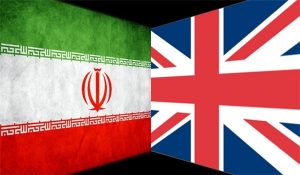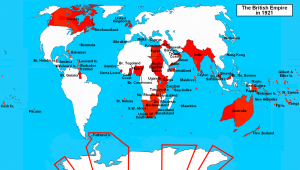The British Labour Party Uses Humanitarian Assistance as a Means of International Diplomacy In the Twenty-First Century
The Labour Government’s ‘giving up of the Empire’ did not mean the end of British influence in the former colonies. It has to be put into the context of a development approach to the colonies, “which would put real flesh on the old bones of trusteeship.”24 The idea of colonial development as essentially based upon shrewd economic considerations, being aimed at retaining Britain’s trading and financial role in the former colonies and, as a result, maintaining Britain’s economic and political position as a world power. It happened essentially because after the War Britain was no longer able to defend the colonial rule. This had been foreseen a long time before the end of World War Two, by both the Conservatives and the Labour politicians – especially by the progressive Conservatives such as Oliver Stanly, the wartime Colonial Secretary, and Andrew Cohen, later to be the Governor of Uganda. In fact, the Labour Government’s policies of colonial development were laid down by the Colonial Development and Welfare Act of 1940 and its successor in 1945. Both of these were products of the war-time coalition. Therefore, the idea of colonial development, later to be developed into the Modern Commonwealth continued the imperial connection. It is reinforced countries by the economic development incentive brought about by the Colonial Development Act. The member countries of this ‘club’, as a result, are responsible for their own defence. Hence Britain’s economic interests in the former colonies were protected, whilst she reduced the cost of defence. Moreover, Britain, being an important capitalist country, by winning support from the colonial countries moving towards independence, deterred the influence of Communism and prevented other western countries moving in. It could be said that since the Second World War, up to now that, is the beginning of the Twenty-First century, giving of aid has become part of international diplomacy.
It was in the Sinhalese capital of Colombo that Ernest Bevin, the British Labour Government’s Foreign Secretary, had his final achievement as Foreign Secretary. It was in this, the first ever meeting of the Commonwealth Foreign Ministers, that the Colonial Development Act of 1940 became officially the Commonwealth Development Corporation and the British equivalent, for the Commonwealth of the Marshall Plan the Colombo Plan- was established. The Meeting in Colombo had taken place in 1950, and, in the following year, Bevin stepped down as Foreign Secretary.
The British Labour Government thus managed to maintain British political and financial interests and prevented the Empire from a total disintegration, by establishing the Modern Commonwealth.



